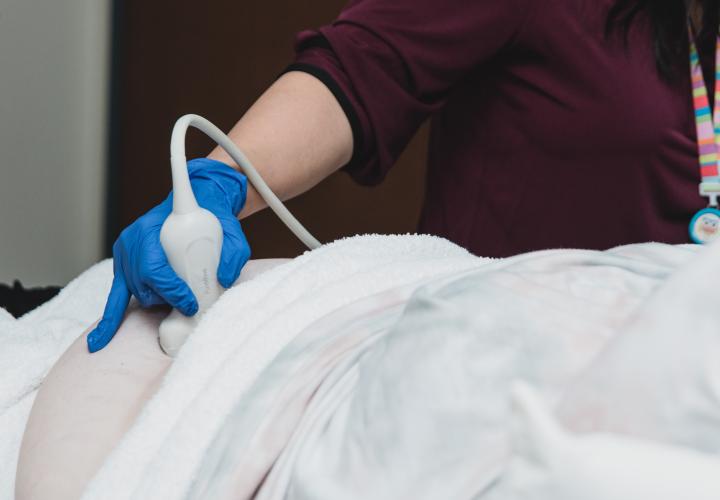1. Understand that babies diagnosed in the womb with a fetal condition need a truly comprehensive evaluation.
In general, in more than 35% of cases referred to a fetal care center, the diagnosis is either wrong or incomplete. This points to the need for a truly comprehensive evaluation.
- A comprehensive fetal care center will make their own assessment by ultrasound, fetal MRI and fetal echocardiography, depending on the nature of the problem.
- Your fetal care team should also consider potential genetic component to the diagnosis can have a significant impact on the prognosis with potential implications for future pregnancies.
It may help to have a conversation with the fetal care center you’re considering to learn about how their center approaches the problem that your baby has and how often they treat this condition.
2. Ask the fetal care center to get very specific about their approach to diagnosing complex fetal conditions.
This may seem repetitive, but the fetal care center should perform their own ultrasound to get first-hand, accurate information about your baby because time will have passed since the last scan with your Ob/Gyn or MFM.
Utilizing ultrasound and fetal MRI imaging is how a fetal care specialist examines your baby and provides the information needed to define the condition and options for treatment before or after delivery.
Even if there are no structural abnormalities with the heart, there are many fetal conditions that can affect the function of the fetal heart, which in turn may affect the prognosis and the treatment options. Fetal echocardiography is also an essential part of this evaluation.
3. Expect transparency from your fetal care team because it’s important to your baby’s care.
If a fetal care center is unwilling or unable to provide information on how frequently they see a particular problem, or cannot provide information regarding outcomes, you may want to consider other locations before committing to one. The more transparent the center is about their approach and experience, the better the care is likely to be.
4. Understand that a fetal care center is different than a maternal-fetal medicine (MFM) practice.
While fetal care centers work closely with MFMs, the two are different because of the team approach:
- A fetal care center, in addition to MFMs, should have a dedicated team of fetal surgeons, neonatologists and pediatric subspecialists who focus solely on the evaluation and management of the full spectrum of fetal conditions.
- At a fetal care center, your evaluation should be very detailed and also completed in a single day.
The fetal care center of your choice should respect the relationship you have with your referring MFM and should actively engage them in regard to your care.
5. Don’t overlook innovation. The fetal care centers with the best outcomes are often dedicated to clinical research.
A commitment to research may open doors to fetal treatments that may not be available at all fetal care centers.
While every developing baby’s needs are different, knowing that the fetal care center you’re considering is operating at the cutting edge of the field can be reassuring.
The physicians involved in your baby’s care should be leaders in the field with access to all treatment options for your baby.
6. What about vertically integrated care?
Vertically integrated care means from the time of diagnosis, throughout your pregnancy, NICU stay and longer term, the team members in the fetal care center “follow” you and your baby to ensure the best possible outcomes.
When considering a fetal care center, ask whether you’ll have a multidisciplinary team consultation that will address all of your concerns about your baby’s condition from diagnosis and prenatal history, to treatment options before and after delivery. Also ask about longer-term care after birth as well as long-term outcomes.
It is important to recognize that receiving a fetal diagnosis can be an overwhelming experience for any family and making a decision for your baby can be challenging even under the best of circumstances.
The Fetal Care Center at Connecticut Children’s is committed to assisting you in this process in any way we can. We encourage you to stay in touch with your obstetrician or maternal-fetal medicine specialist just as we communicate with them during important milestones. You are not alone and we’re here to support you every step of the way.
The Fetal Care Center at Connecticut Children’s is led by Timothy M. Crombleholme, MD, one of the world’s most experienced fetal surgeons. Dr. Crombleholme is a pioneer in fetal surgery with decades of experience in fetoscopic surgery, open fetal surgery, image-guided fetal intervention, and EXIT procedures.
Dr. Crombleholme is a nationally recognized authority in the treatment of congenital diaphragmatic hernia (CDH), myelomeningocele (MMC), twin-twin transfusion syndrome (TTTS), congenital pulmonary airway malformation (CPAM) and sacrococcygeal teratoma (SCT), among many others.
